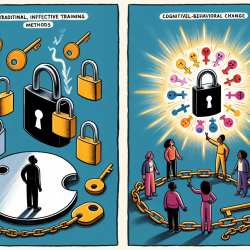Introduction
In the quest to eliminate malaria, understanding the local sociocultural context is crucial. The research article titled “Wherever doctors cannot reach, the sunshine can”: overcoming potential barriers to malaria elimination interventions in Haiti provides valuable insights into community perceptions and barriers to malaria elimination efforts. This blog post aims to help practitioners enhance their skills by implementing research outcomes and encouraging further exploration of community-based interventions.
Understanding Community Perceptions
The study reveals that community beliefs about malaria often include magical phenomena, alongside the known vector-borne transmission. This dual perception poses a challenge for health practitioners aiming to educate and implement effective interventions. Practitioners can improve their strategies by acknowledging these beliefs and working with traditional healers, such as voodoo priests, who are respected figures in Haitian communities.
Engaging with Local Healers
One of the key recommendations from the research is to involve local healers in malaria elimination efforts. Traditional healers and voodoo priests can play a pivotal role in referring patients to health facilities and encouraging the use of modern medical treatments. Practitioners should consider organizing training sessions for these healers to improve their competence in recognizing and managing malaria symptoms.
Addressing Access Barriers
The study highlights several barriers to accessing healthcare, including distance to health facilities, costs, and mistrust of foreign interventions. Practitioners can address these barriers by implementing community case management strategies, where community health workers provide diagnosis and treatment within the community. This approach can mitigate issues related to distance and costs, while also building trust through the involvement of familiar local health workers.
Leveraging Mass Test and Treat Campaigns
Mass test and treat (MTaT) campaigns are welcomed by communities but require careful planning to overcome mistrust. Practitioners should ensure that these campaigns are led by well-known local health personnel and supported by community leaders. Using official venues for testing and ensuring transparency about the use of blood samples can help alleviate fears and increase participation.
Enhancing Vector Control Measures
Community members appreciate the use of long-lasting insecticidal nets (LLINs) but face challenges in accessing them. Practitioners can advocate for more widespread distribution and ensure that campaigns reach hard-to-reach households. Additionally, addressing environmental factors, such as eliminating mosquito breeding sites, can significantly reduce malaria transmission and gain community support.
Implementing Mass Drug Administration
Mass drug administration (MDA) campaigns require careful sensitization to ensure community acceptance. Practitioners should draw on past experiences, such as the lymphatic filariasis elimination program, to design campaigns that respect individual consent and involve local support. Educating communities about the benefits of MDA and addressing fears of side effects can improve uptake.
Conclusion
Practitioners have a critical role in overcoming barriers to malaria elimination in Haiti. By engaging with communities, respecting cultural beliefs, and implementing tailored interventions, they can contribute to successful malaria elimination efforts. To delve deeper into the original research and explore more detailed strategies, “Wherever doctors cannot reach, the sunshine can”: overcoming potential barriers to malaria elimination interventions in Haiti.










